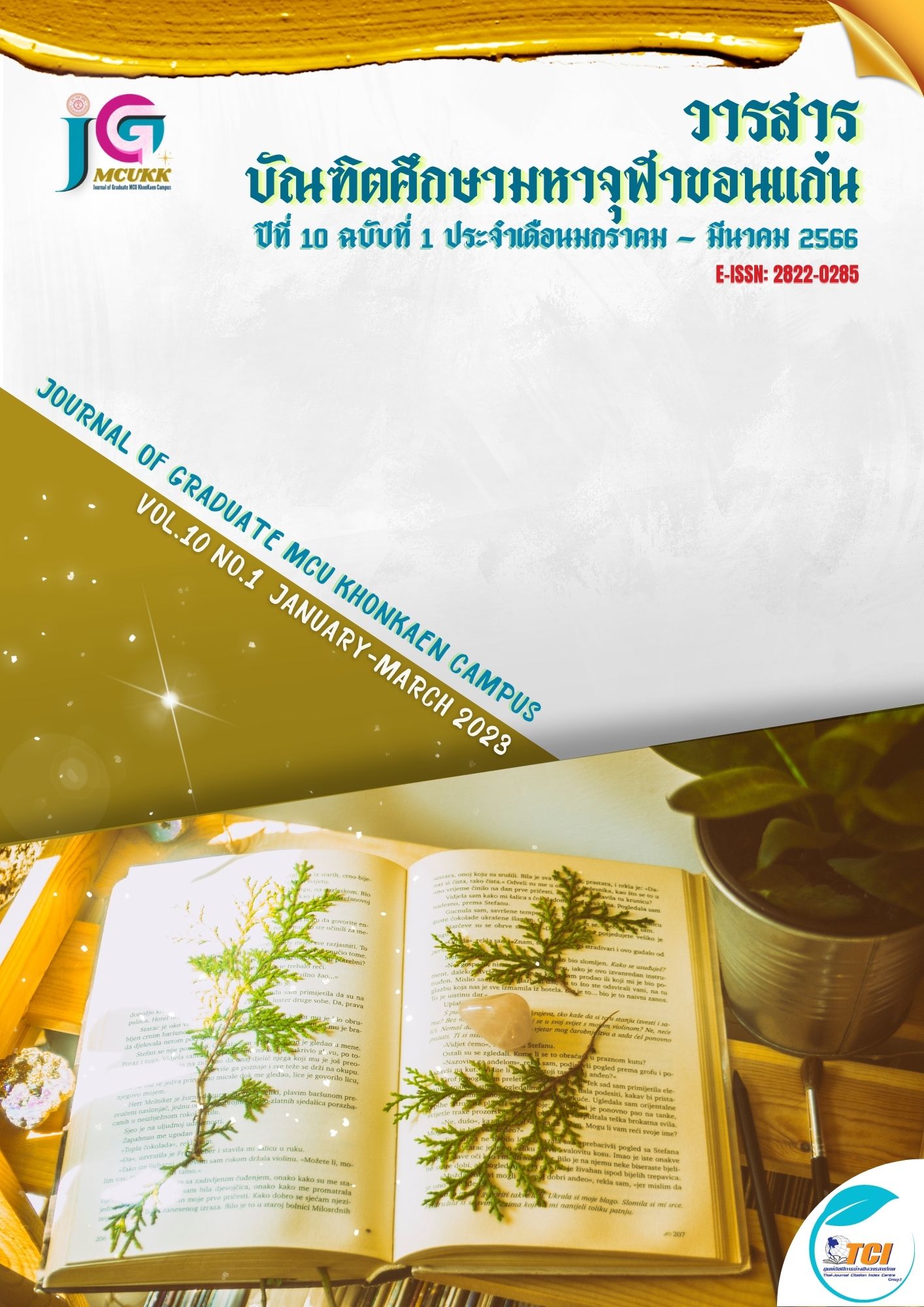STEAM Education Advancement and Teacher Development Abroad : A Literature Review
Main Article Content
Abstract
This research aimed to review the literature on STEAM education advancement and teacher development abroad. By using secondary data analysis through the Google Scholar database, summarized by analytical tables and content analysis.
The results showed that according to a case study of STEAM Education Advancement and Teacher Development in South Korea and the United States, there is a consistent approach such as 1) Government agencies recognize the importance of STEAM education and teacher development 2) Research and development funding support 3) Various
sectors working together on the advancement of STEAM education 4) Teacher development program continuously supported teacher afterward. Research from both countries supported that STEAM education has a positive impact on students in accordance with the goals each country desired, for example: developing students' creative thinking, analytical thinking, problem solving, collaboration, improving students' motivation, and desire to pursue a career in science, etc. The results are synthesized as a model guideline for STEAM Education Advancement in Thailand with the following key points: the government sector should first and foremost recognize the importance and benefits of STEAM education and must collaborate with network partners to support teachers throughout the process. It is necessary to start with developing teachers to have a correct understanding of STEAM education by developing their knowledge, skills, and motivation. The process of developing an integrated lesson plan and its practical implementation in the classroom must result from the collaboration of teachers. In addition, the effects of STEAM education on students should also be studied. Thus, this model for STEAM education advancement should be able to lead to a positive impact on students.
Article Details

This work is licensed under a Creative Commons Attribution-NonCommercial-NoDerivatives 4.0 International License.
References
กัญภร เอี่ยมพญา. (2561). การพัฒนาวิชาชีพครู. นนทบุรี: 21 เซนจูรี่.
วิสูตร โพธิ์เงิน. (2560). STEAM ศิลปะเพื่อสะเต็มศึกษา: การพัฒนาการรับรู้ความสามารถและแรงบันดาลใจให้เด็ก. วารสารครุศาสตร์ จุฬาลงกรณ์มหาวิทยาลัย, 45(1), 320-334.
สถาบันส่งเสริมการสอนวิทยาศาสตร์และเทคโนโลยี. (2565). สสวท. พัฒนาครูจัดการเรียนรู้ฐานสมรรถนะทันโลกยุคใหม่ตามแผน 5 ปี. สืบค้นเมื่อ 7 มกราคม 2566, จากhttps://www.ipst.ac.th/news/28579/20220614-ipst-3i-2h.html
Allina, B. (2018) The development of STEAM educational policy to promote student creativity and social empowerment, Arts Education Policy Review, 119(2), 77-87
Boice, K. L., Jackson, J. R., Alemdar, M., Rao, A. E., Grossman, S., & Usselman, M. (2021). Supporting Teachers on Their STEAM Journey : A Collaborative STEAM Teacher Training Program. Education Sciences, 11(3), 105.
Carmichael, C. C. (2017). A State-by-State Policy Analysis of STEM Education for K-12 Public Schools, Seton Hall University Dissertations and Theses (ETDs), 2297.
Dell'Erba, M. (2019). Policy Considerations for STEAM Education. Policy Brief. Education Commission of the States. Retrieved January 7, 2023, from https://www.ecs.org/policy-considerations-for-steam-education/
Hong, O. (2017). STEAM Education in Korea: Current Policies and Future Directions. Retrieved January 7, 2023, from https://www.researchgate.net/publication/328202165_STEAM_Education_in_Korea_Current_Policies_and_Future_Directions
Huser, J. (2020). STEAM and the Role of the Arts in STEM. New York: State Education Agency Directors of Arts Education.
Jho, H., Hong, O., & Song, J. (2016). An Analysis of STEM/STEAM Teacher Education in Korea with a Case Study of Two Schools from a Community of Practice Perspective. Eurasia Journal of Mathematics, Science and Technology Education, 12(7), 1843-1862.
Hyun, J. & Park, C. (2020). Research Analysis on STEAM Education with Digital Technology in Korea to Prepare for Post-Corona Era Education. International Journal of Contents, 16(3), 101-110.
Kang, N. (2019). A review of the effect of integrated STEM or STEAM (science, technology, engineering, arts, and mathematics) education in South Korea, Asia-Pacific Science Education, 5(1), 1-22.
Katherine, L.B., Justina, R.J., Meltem, A., Analia, E.R., Sabrina, G., and Marion, U. (2021). Supporting Teachers on Their STEAM Journey: A Collaborative STEAM Teacher Training Program. Education Sciences, 11(3), 105.
Park, H., Byun, S.-Y., Sim, J., Han, H.-S., & Baek, Y. S. (2016). Teachers’ Perceptions and Practices of STEAM Education in South Korea. Eurasia Journal of Mathematics, Science and Technology Education, 12(7), 1739-1753.

